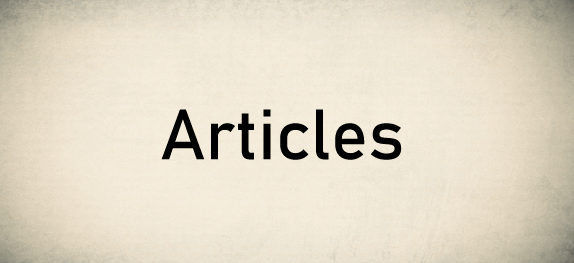Article Definition GrammarThe words used to determine the difference between crucial or trivial nouns are called articles. Articles such as 'the', 'an' and' a' express that any particular or insignificant object, person, place etc., are being addressed in a sentence. For example- A squirrel came out of the hole in the soil.  In each case, 'the' represents a particular 'soil' and 'hole'. It cannot be just any hole or any soil that is being described here. On the other hand, the word for addressing the squirrel in the sentence is 'a', as it can be any squirrel and is not specified. The articles are the kind of adjectives that bring out the exclusiveness of a noun. The article 'the' is used to imply that the upcoming noun is one of its kind and does not leave any doubt for the readers as they would be already familiar with its identity. This article is also known as a definite article because the identity of the noun with it is still intact. This article could be used with countable and uncountable nouns and singular and plural nouns. For Instance:
In other articles, 'a' and 'an' determine that the noun is insignificant. These articles are also known as indefinite articles because the specification of nouns along with it is lost. Article 'a' is commonly used for countable singular nouns. Mostly, they are put to use with nouns beginning with consonants (alphabets that are not a,e, i,o and u) For example-
Article 'an' is generally used with words that start with vowel sounds. Alike 'the' article, 'an', 'is used with singular nouns. For instance-
Note
The concept of numbers in determining which noun should be used in a phrase is important. The nouns are very specific words and names that assist in pointing out the objects that are being addressed. The computable, incomputable and proper nouns are categories on the basis on which the usage of articles depends.
For example-
For example-
Principles for Using the ArticlesCertain rules need to be considered while placing an article before any noun.
For example-
For example-
Uses of Articles1. Use of 'a'1. It could be used with a common noun when it makes sense in a sentence. For example- A woman just walked by me. 2. It could be used before a quantity, measurement or amount of something. For example,-The cost of bananas is Rs.30 a dozen 3. When verbs in a sentence are in -ing form and are suggested as nouns, 'a' could be used. For example- I was thinking about joining a cooking class. 4. It is used with singular and unspecific terms. For example- I think I heard a scream. 5. It suggests the variety of an object pointed out in the sentence. For example- This sounds like a very good book. 6. It is used with a name unfamiliar to the reader or listener. For example- Do you know a Nisha Rastogi? 7. It is used with the days of a week and month names. For example- I am organizing a party on a Friday next month. 8. It is used before particular exclamatory sentences. For example- What a lovely gift! 2. Use of 'an'1. An is used with words that begin with vowels. For example- I have an old bicycle. An apple just fell from the tree 2. Even though the noun succeeding an article is a consonant, it sounds like a vowel, the article 'an' can be used. For example- Sia is an L.L.B graduate from Delhi University. I'll be there in an hour 3. 'An' can be used with adjectives. For example- Ramona is an attractive woman. He seems like an eager fellow. 4. An can be used for exclamatory sentences. For instance - What an abomination! What an adorable little thing this is! 5. 'An' is used to signify a profession. She is an architect. This man is an author. 3. Use of 'The'1. It can be used for peculiar things or ones that are not abundant or common. For Example-
2. It can be used before singular nouns pointing out an object that is regarded as the subject. For Example-
3. 'The' could be used with Superlative forms of adverbs. For example-
4. 'The' for various geographical regions as described below:
Differences between Definite and Indefinite ArticlesDefinite Articles
Indefinite Articles
Next TopicArtificial Intelligence Definition |